Daily Vocabulary Words: List of Daily Used Words in Leading International Newspapers
Hi there. Welcome to this special section @ Wordpandit.
Our endeavour here is very simple: to highlight important daily vocabulary words, which you would come across in leading newspapers in the country. We have included the following newspapers in our selection:
• The New York Times
• The Washington Post
• Scientific American
• BBC
• The Guardian
• Psychology Today
• Wall Street Journal
• The Economist
We are putting in extensive work for developing your vocabulary. All you have got to do is be regular with this section and check out this post on a daily basis. This is your repository of words that are commonly used and essentially, we are posting a list of daily used words. Hence, this has significant practical application as it teaches you words that are used commonly in leading publications mentioned above.
Visit the website daily to learn words from leading international newspapers.
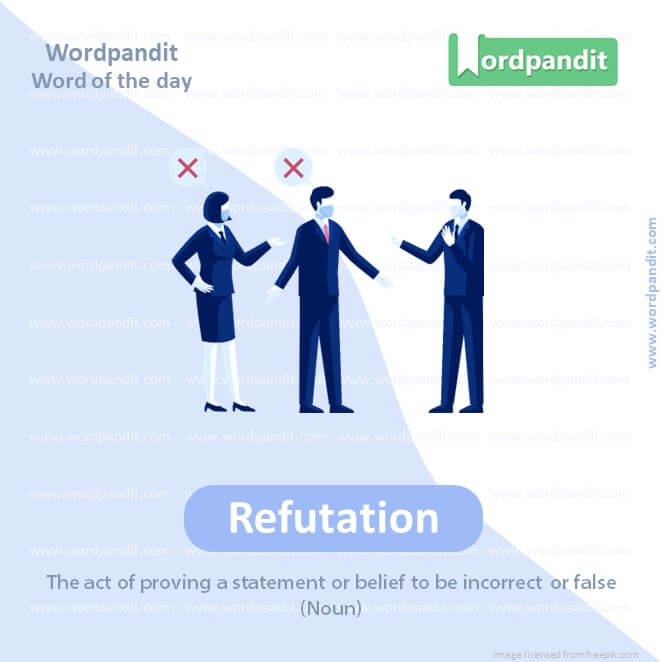
WORD-1: Refutation
CONTEXT: The originally hard-right refutation of our historical responsibility has become popular on the other side of the political spectrum.
SOURCE: The Guardian
EXPLANATORY PARAGRAPH: Refutation is when you prove something is not true, like telling your friend that unicorns aren’t real because they only exist in stories and there’s no evidence of them in real life.
MEANING: The act of proving a statement or belief to be incorrect or false. (Noun)
PRONUNCIATION: reh-fyoo-TAY-shun
SYNONYMS: Disproof, Rebuttal, Discrediting, Denial, Contradiction
USAGE EXAMPLES:
1. The scientist’s refutation of the old theory led to a new discovery.
2. Her essay included a strong refutation of the misconception.
3. He offered a refutation to the rumor circulating about him.
4. The refutation of the claim was necessary to clear the misunderstanding.
WORD-2: Pulverised
CONTEXT: Russia pulverised decades of German Ostpolitik when it attacked Ukraine, and with it the European postwar order.
SOURCE: The Guardian
EXPLANATORY PARAGRAPH: Pulverised means something has been crushed or ground into a very fine powder, like when you use a blender to turn fruits into a smoothie.
MEANING: Crushed or ground into a fine powder or dust. (Verb)
PRONUNCIATION: PUL-vuh-raizd
SYNONYMS: Crushed, Ground, Powdered, Mashed, Shredded
USAGE EXAMPLES:
1. The rocks were pulverised into gravel.
2. She pulverised the almonds for the cake topping.
3. The machine pulverised the grains into flour.
4. After the building demolition, the concrete was pulverised.
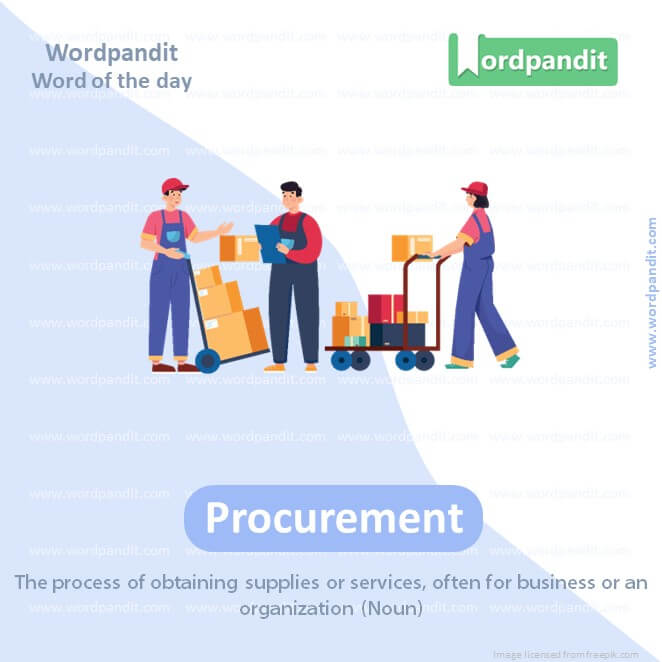
WORD-3: Procurement
CONTEXT: Describing and requiring best practices for procurement of AI systems is one of the most significant things government departments can do right now.
SOURCE: The Guardian
EXPLANATORY PARAGRAPH: Procurement is like when you go shopping to get things you need, like groceries for your home or supplies for school.
MEANING: The process of obtaining supplies or services, often for business or an organization. (Noun)
PRONUNCIATION: pro-KYUR-ment
SYNONYMS: Acquisition, Purchasing, Obtaining, Sourcing, Securing
USAGE EXAMPLES:
1. The company’s procurement department is responsible for buying office supplies.
2. Effective procurement strategies can save a lot of money.
3. The government is careful in its procurement of defense equipment.
4. Procurement of quality materials is crucial for manufacturing.
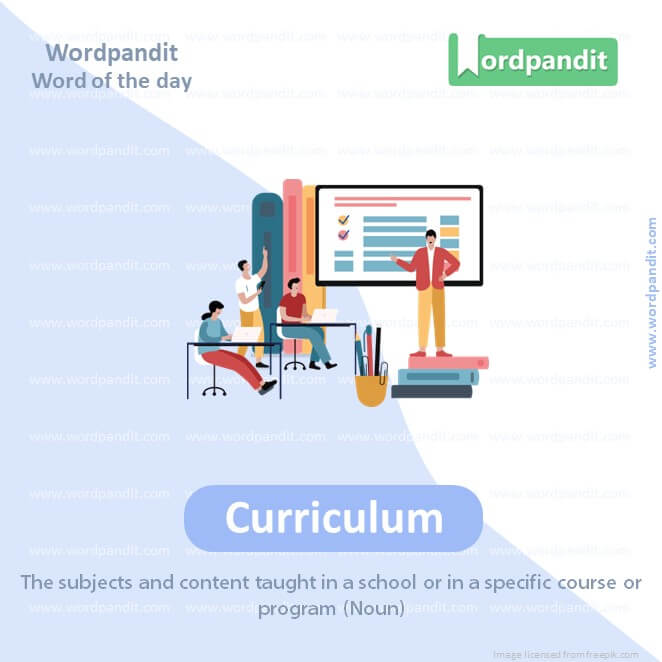
WORD-4: Curriculum
CONTEXT: Schools are stunted by “examification” and a rigid, overstuffed curriculum offering so much less to spark their enthusiasm.
SOURCE: The Guardian
EXPLANATORY PARAGRAPH: Curriculum is like a list of all the things you will learn at school, like math, reading, science, and art.
MEANING: The subjects and content taught in a school or in a specific course or program. (Noun)
PRONUNCIATION: kuh-RIK-yuh-lum
SYNONYMS: Course, Syllabus, Program, Educational Content, Study Plan
USAGE EXAMPLES:
1. The new curriculum includes more practical lessons.
2. They updated the curriculum to make learning more fun.
3. Each grade has a different curriculum.
4. The school’s curriculum focuses on both academics and sports.
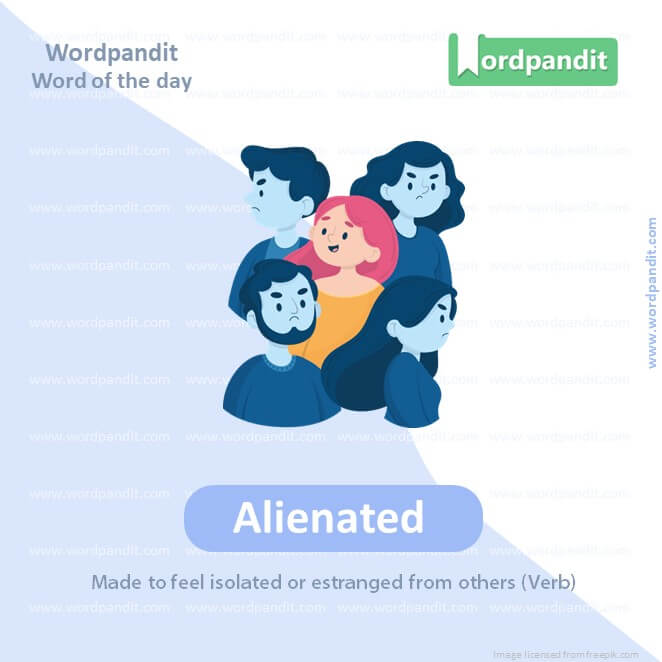
WORD-5: Alienated
CONTEXT: That children are alienated from education is no surprise when schools are stunted by “examification” and a rigid, overstuffed curriculum offering so much less to spark their enthusiasm.
SOURCE: The Guardian
EXPLANATORY PARAGRAPH: Alienated is when someone feels alone or left out, like when you’re not invited to play a game with your friends.
MEANING: Made to feel isolated or estranged from others. (Verb)
PRONUNCIATION: AY-lee-uh-nay-tid
SYNONYMS: Estranged, Isolated, Disconnected, Excluded, Disaffected
USAGE EXAMPLES:
1. He felt alienated from his peers at school.
2. The new policy alienated many of the company’s loyal customers.
3. Feeling alienated, she didn’t participate in the group activities.
4. The lack of communication alienated him from his family.
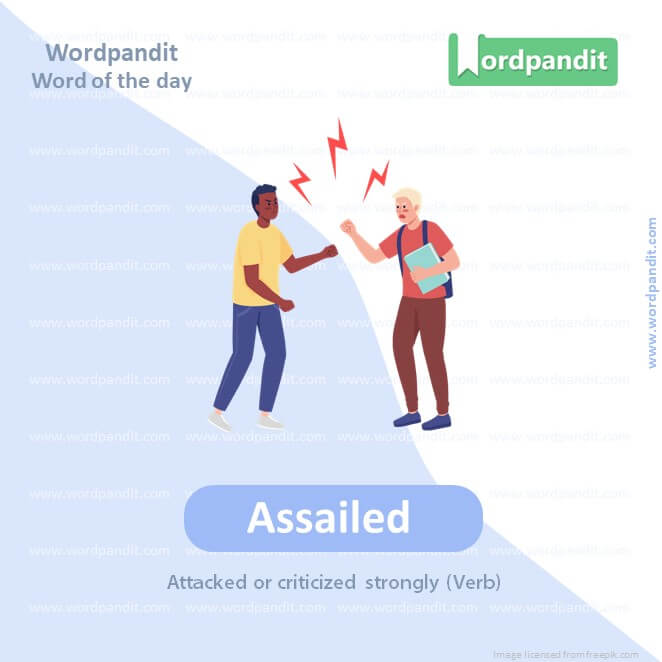
WORD-6: Assailed
CONTEXT: He assailed the “
blob” of teachers and cut 9% per pupil.
SOURCE: The Guardian
EXPLANATORY PARAGRAPH: Assailed is like being attacked or strongly criticized, like when someone says many unkind things about your drawing.
MEANING: Attacked or criticized strongly. (Verb)
PRONUNCIATION: uh-SAYLD
SYNONYMS: Attacked, Criticized, Bombarded, Confronted, Assaulted
USAGE EXAMPLES:
1. The politician was assailed with questions.
2. She felt assailed by the sudden rush of homework.
3. Critics assailed the film for its poor script.
4. The fortress was assailed by the enemy forces.
WORD-7: Castigated
CONTEXT: Gove castigated Labour for the attainment gap between poorer and better-off children.
SOURCE: The Guardian
EXPLANATORY PARAGRAPH: Castigated means being told off or punished strongly, like when a teacher scolds a student for not doing homework.
MEANING: Severely reprimanded or punished. (Verb)
PRONUNCIATION: KAS-ti-gay-tid
SYNONYMS: Scolded, Rebuked, Criticized, Reprimanded, Chastised
USAGE EXAMPLES:
1. The employee was castigated for missing the deadline.
2. He castigated himself for his careless mistake.
3. The coach castigated the team for their poor performance.
4. She was castigated in the media for her controversial statements.
WORD-8: Perpetual
CONTEXT: Further education colleges, havens for second chances, must enforce perpetual resits until they reach 18.
SOURCE: The Guardian
EXPLANATORY PARAGRAPH: Perpetual is something that never ends or changes, like a cartoon character who always wears the same clothes every day.
MEANING: Continuing forever or for a very long time without stopping. (Adjective)
PRONUNCIATION: per-PECH-oo-ul
SYNONYMS: Continuous, Endless, Eternal, Unending, Constant
USAGE EXAMPLES:
1. He had a perpetual smile on his face.
2. The machine was designed for perpetual motion.
3. She complained of perpetual headaches.
4. Their love seemed perpetual.
WORD-9: Apoplexy
CONTEXT: The net number of people coming to Britain in 2022 up to 745,000, were always going to induce apoplexy in the Conservative party, followed by the usual rhetoric about cutting the numbers in some draconian manner.
SOURCE: The Guardian
EXPLANATORY PARAGRAPH: Apoplexy is a sudden medical condition where something goes wrong in your brain, like when a computer suddenly stops working because of a big problem inside.
MEANING: A sudden loss of bodily function due to a rupture or blockage in the brain, often leading to unconsciousness. (Noun)
PRONUNCIATION: AP-uh-plek-see
SYNONYMS: Stroke, Seizure, Fit, Collapse, Insult
USAGE EXAMPLES:
1. The doctor diagnosed him with apoplexy.
2. Apoplexy can be life-threatening if not treated immediately.
3. He collapsed from apoplexy during the meeting.
4. Risk factors for apoplexy include high blood pressure and smoking.
WORD-10: Draconian
CONTEXT: The net number of people coming to Britain in 2022 up to 745,000, were always going to induce apoplexy in the Conservative party, followed by the usual rhetoric about cutting the numbers in some draconian manner.
SOURCE: The Guardian
EXPLANATORY PARAGRAPH: Draconian is when rules are very strict and harsh, like if your parents say no TV or games at all for a tiny mistake.
MEANING: Excessively harsh and severe, especially regarding laws or rules. (Adjective)
PRONUNCIATION: druh-KO-nee-un
SYNONYMS: Harsh, Severe, Strict, Rigorous, Stern
USAGE EXAMPLES:
1. The new laws were considered draconian by many.
2. He imposed draconian measures to maintain order.
3. The teacher’s draconian rules stifled creativity.
4. They protested against the draconian policies.
Vocabulary Meaning
In the ocean of language learning, ‘vocabulary meaning’ is akin to the colorful coral reefs that add depth and vibrancy to communication. Yet, infusing our interactions with this vibrancy is often a challenge for many language learners. The crux lies in effectively deciphering and employing the ‘vocabulary meaning’.
Learning ‘vocabulary meaning’ isn’t about merely gluing words to their definitions. It’s about forming a deep understanding and connection with these words that transcends rote learning. To gain a comprehensive grasp of ‘vocabulary meaning’, one needs to navigate beyond textbook definitions and commit to exploiting diversified resources such as novels, films, music, articles, and digital content. This allows one to encounter vocabulary in a variety of contexts and actual usage, giving deeper insight into their meaning.
However, understanding ‘vocabulary meaning’ involves another essential aspect—memory retention. Techniques such as spaced repetition and the Leitner System offer effective methodologies to maintain and consolidate the ‘vocabulary meaning’. Additionally, leveraging mnemonic strategies can help etch words into your memory by linking them with unique stories or imagery that are personal and easily recallable.
Another way of mastering ‘vocabulary meaning’ is by immersing yourself in the language. Engage in regular conversations with native speakers if possible or utilize language exchange platforms to practice your skills. This not only bolsters your understanding of how the vocabulary is used but also helps articulate the ‘vocabulary meaning’ in the societal and cultural contexts.
In conclusion, gaining a robust grasp of ‘vocabulary meaning’ is a journey rather than an end goal. It requires dedication, perseverance and most importantly, a multi-faceted approach that includes diversified resources, effective memory strategies, and real-life application. With these strategies in place, the depths of ‘vocabulary meaning’ are no longer daunting but become an enchanting exploration of language.







